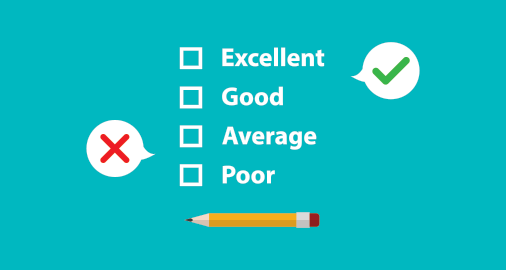Giving interview feedback: the dos and don’ts
The dos of giving interview feedback include telling the truth, writing creatively, being tactful, praising when possible, and aiming to help. The don'ts include appearing condescending, raising false hopes, comparing candidates, and inviting litigation. Feedback should be meaningful, respectful, and aimed at helping candidates improve.

Do you find it easy giving interview feedback to rejected candidates? If so, you’re one of the lucky few. Most interviewers are afraid they’ll do it wrong, upset candidates or create legal risks for their company. Yet, there are ways to get it right and reap the rewards.
Contents
Why even offer to provide interview feedback?
Sending a post-interview rejection email is necessary. Candidates will resent companies who never bothered to tell them they were rejected after an interview. But, giving interview feedback is voluntary and doesn’t appear productive at first glance. Why would you spend valuable time to help rejected candidates improve?
Giving feedback after an interview pays off in the long term. Candidate experience is a major factor to consider when building a competitive employer brand. Giving candidate feedback demonstrates that you go the extra mile as a potential employer. Candidates will appreciate receiving a rejection email. And they’ll be impressed that you’re taking the time to help them.
Enhanced candidate experience translates into:
- A talent pool with pre-qualified candidates who still want to work for you (and will do a better job in future interviews)
- Candidates who’re unlikely to bad mouth your company
- Candidates who’ll share their positive experience
So how do you ensure your interview feedback is good for candidate experience? Here are a few dos and don’ts, and examples of how to give good feedback after an interview.
The dos of giving interview feedback:
Tell the truth
Candidates deserve honesty. Telling them they were great in an interview when they know they messed up won’t earn their respect. You don’t have to be too honest, though. Don’t tell them that you were offended because they didn’t look into your eyes when speaking. Keep your feedback tied to the job requirements.
Structured interviews help you focus on job-related criteria. If you’d like to learn more, download our free guide.
Write creatively
There are many cliche phrases you can use like “we wanted someone with more relevant experience” or “we wanted a more diverse skill set.” But, candidates might think you’re trying to dodge their feedback request, or that you’re being euphemistic. Instead of using these empty phrases, give details of real examples from their interview and offer advice for improvement. Note-keeping comes in handy, especially if it’s done during a structured interview process that’s focused on job-related questions.
Be tactful
Hopefully, there aren’t many interviewers who would tell a candidate that they “suck at teamwork.” But there are other ways to be unwittingly rude. For example, if a candidate’s body language suggested they were overly nervous, interviewers might be tempted to say “we noticed you’re not comfortable interacting face-to-face so it’s unlikely you’ll succeed in our sales team.” You could try giving direct advice instead: “Practice pitching products and ensure your movements communicate your enthusiasm.”
Praise when you can
False praise is never a good thing. But if there were things you truly liked about a candidate, say so. Feedback after an interview doesn’t have to only be negative. Positive feedback not only softens the blow—it can be useful. Candidates need to know what they did well so they can keep doing it.
Aim to help
Feedback should be meaningful. Don’t just make a list of things you didn’t like about a candidate. It’s also best to avoid confusing feedback like “your answers were too short.” Think specifically about what they could change to interview better next time. This is good for your company too; great candidates will improve their interviewing skills and give you reasons to hire them in the future.
The don’ts of giving interview feedback:
Don’t appear condescending
Tone matters. Being “shocked” or “appalled” by how little a candidate prepared for your interview can be off-putting. Neutral language and positive framing can help. Sometimes it’s difficult to criticize without sounding high and mighty, but it’s vital to avoid it. It helps to have a colleague review your feedback message before you send it.
Don’t raise false hopes
Most interviewers will say they’ll keep candidates’ resumes on file. But, sometimes, they can get carried away when providing feedback: “You only need to work on your Javascript, otherwise you’d be perfect for the position.” This implies that the candidate might be considered if they become a Javascript master. Sending this message is ok, if it’s true, but it’s best to leave your options open. You can’t really be sure that you’ll hire a candidate next time around. If you don’t, they might resent you.
Don’t compare
Candidates know they didn’t get hired because you thought someone else was better. There’s no need to tell them, especially if they went through a group interview. They’re not interested in knowing that someone else has more advanced degrees or showed better leadership skills. It doesn’t help them improve and some candidates might consider such comparisons rude. Others might not even believe they’re true since they don’t know anything about the other candidates you interviewed.
Don’t invite litigation
Candidates could claim discrimination without being able to prove it. When you provide them with written feedback, you should be extra careful. Even if you didn’t discriminate, your word choices could expose you to legal risk. For example: “We wanted someone with no obligations outside work who could be constantly on call.” If your rejected candidate is a working mother, or pregnant, this could mean trouble. You could avoid this risk by providing careful feedback over the phone. But, in that case, prepare to spend more time providing feedback to each candidate.
Frequently asked questions
- How do you share feedback after an interview?
- Share what they did well in the interview and what it seems they are good at. Your compliments here should be genuine and not feel forced. Give specific examples and encourage them to continue to develop those strengths.
- What is an interview feedback form?
- Interview feedback forms are used to standardize the way in which a hiring team evaluates a candidate. Interview feedback helps keep interviewers objective and provides them with guidelines on what are important aspects of said role that need to be evaluated.
- How do you write a feedback example?
- Examples of reinforcing employee feedback like “I think you did a great job when you…” “I would love to see you do more of X as it relates to Y” to help candidates understand what they did well and how they could improve. This will help your candidates build trust with you and your business.




